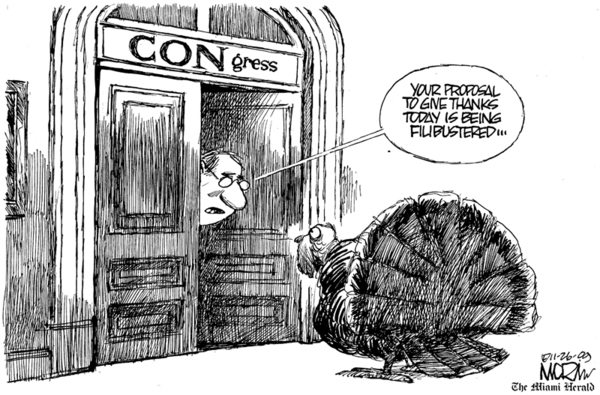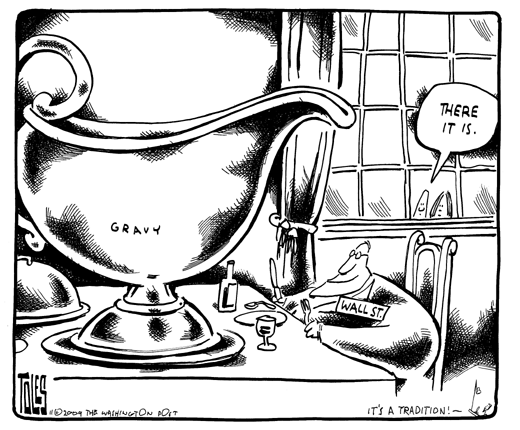 Jeff Tucker's Bonfire of the Missalettes is fighting the IP forces inside the Catholic Church!
Jeff Tucker's Bonfire of the Missalettes is fighting the IP forces inside the Catholic Church! 
Against Monopoly
defending the right to innovate
Monopoly corrupts. Absolute monopoly corrupts absolutely.
Copyright Notice: We don't think much of copyright, so you can do what you want with the content on this blog. Of course we are hungry for publicity, so we would be pleased if you avoided plagiarism and gave us credit for what we have written. We encourage you not to impose copyright restrictions on your "derivative" works, but we won't try to stop you. For the legally or statist minded, you can consider yourself subject to a Creative Commons Attribution License.
current posts | more recent posts | earlier posts
Bonfire of the Missalettes!
 Jeff Tucker's Bonfire of the Missalettes is fighting the IP forces inside the Catholic Church!
Jeff Tucker's Bonfire of the Missalettes is fighting the IP forces inside the Catholic Church! [Posted at 12/03/2009 02:25 PM by Stephan Kinsella on IP and Religion  comments(4)]
comments(4)]
IP and Artificial Scarcity
So I thought I would elaborate a bit on this. The "artificial scarcity" insight is indeed a good one, but it is not mine. From pp. 33-34 of Against Intellectual Property:
Ideas are not naturally scarce. However, by recognizing a right in an ideal object, one creates scarcity where none existed before. As Arnold Plant explains:It is a peculiarity of property rights in patents (and copyrights) that they do not arise out of the scarcity of the objects which become appropriated. They are not a consequence of scarcity. They are the deliberate creation of statute law, and, whereas in general the institution of private property makes for the preservation of scarce goods, tending . . . to lead us "to make the most of them," property rights in patents and copyrights make possible the creation of a scarcity of the products appropriated which could not otherwise be maintained.[64]Bouckaert also argues that natural scarcity is what gives rise to the need for property rules, and that IP laws create an artificial, unjustifiable scarcity. As he notes:Natural scarcity is that which follows from the relationship between man and nature. Scarcity is natural when it is possible to conceive of it before any human, institutional, contractual arrangement. Artificial scarcity, on the other hand, is the outcome of such arrangements. Artificial scarcity can hardly serve as a justification for the legal framework that causes that scarcity. Such an argument would be completely circular. On the contrary, artificial scarcity itself needs a justification.[65]Thus, Bouckaert maintains that "only naturally scarce entities over which physical control is possible are candidates for" protection by real property rights.[66] For ideal objects, the only protection possible is that achievable through personal rights, i.e., contract (more on this below).[64] Arnold Plant, "The Economic Theory Concerning Patents for Inventions," p. 36. Also Mises, Human Action, p. 364: "Such recipes are, as a rule, free goods as their ability to produce definite effects is unlimited. They can become economic goods only if they are monopolized and their use is restricted. Any price paid for the services rendered by a recipe is always a monopoly price. It is immaterial whether the restriction of a recipe's use is made possible by institutional conditions such as patents and copyright laws or by the fact that a formula is kept secret and other people fail to guess it." [For more on Mises's view of IP, see Mises on Intellectual Property.]
[65] Boudewijn Bouckaert, What Is Property? (text version) in "Symposium: Intellectual Property," Harvard Journal of Law & Public Policy 13, no. 3 (Summer 1990), p. 793; see also pp. 797-99.
[66] Bouckaert, "What is Property?" pp. 799, 803.
Bouckaert's paper, What Is Property? (text version), is, by the way, superb and highly recommended.
Update: Jeff Tucker's article and recent speech had me thinking about something that ties into this post well. People want to impose artificial scarcity on non-scarce things because they think scarcity is good. But they have it backwards. If anything, we should want material things to be non-scarce.
In Tucker's talk, he was pointing out the difference between scarce resources and non-scarce, infinitely reproducible ones. Yes, they are different, but I think we also need to combat another fallacious view: people seem to implicitly think it's bad that ideas are infinitely reproducible. This is a "problem" we need to combat by making them artificially scarce. But it's a good thing. i.e., at least ideas are non-scarce; but unfortunately, material things are scarce. But it would be good if material things were more abundant. So imagine that some benevolent genius invents a matter-copying device that lets you just point it at some distant object, and instantly duplicate it for free for you. So I see a coat you are wearing, click a button, and now I have an identical copy. I see you having a nice steak, and duplicate it. Etc. This would make us all infinitely wealthy. It would be great. Of course people would fear the "unemploymetn" it would cause--hey, I want to be unemployed and rich! And the rich would hate it because they would now not be special. They couldn't lord their Rolls Royces and diamonds over the poor; the poor would have all that (it would be similar to how audiophiles were irked by the advent of the CD so tried to find granite turntables etc. to pretend they were still better). So imagine a rich guy suing a guy who "copied" his car.... imagine farmers suing people who copied their crops to keep from starving... how absurd! And what damages would they ask for? Not monetary damages--the defendant could just print up wealth to pay him off! So the only remedy he could want would be to punish or impoversih the defendant... for satisfation, to once again feel superior. How sick. As my friend Rob Wicks noted, you could imagine a short story based on this in which judge orders a famine as a remedy to crop-copying.
[Posted at 12/03/2009 07:14 AM by Stephan Kinsella on IP and Economics  comments(2)]
comments(2)]
Spanish Manifesto in Defense of Fundamental Rights on the Internet
1. Copyright can not be above the fundamental rights of citizens, including the right to privacy, security, the presumption of innocence, to effective judicial protection and freedom of expression.People are beginning to recognize the growing conflict between individual rights and "intellectual property"--and, if forced to choose, are choosing real, individual rights over IP. Hopefully it won't stop here.
(HT to Keith Krauland for the link)
[Mises cross-post; SK cross-post]
[Posted at 12/02/2009 08:55 AM by Stephan Kinsella on Copyright  comments(7)]
comments(7)]
Jerry Pournelle on Copyright, Star Wars and Battlestar Galactica
 On the latest This Week in Tech, guest panelist and sci-fi author Jerry Pournelle has an interesting anecdote about his involvement with a copyright squabble between Fox and Universal in the 1970s concerning Star Wars and Battlestar Galactica. As noted on Wikipedia:
On the latest This Week in Tech, guest panelist and sci-fi author Jerry Pournelle has an interesting anecdote about his involvement with a copyright squabble between Fox and Universal in the 1970s concerning Star Wars and Battlestar Galactica. As noted on Wikipedia:
Battlestar Galactica was finally produced in the wake of the success of the 1977 film Star Wars. In fact, 20th Century Fox sued Universal Studios (the studio behind Battlestar Galactica) for copyright infringement, claiming that it had stolen 34 distinct ideas from Star Wars. Universal promptly countersued, claiming Star Wars had stolen ideas from the 1972 film Silent Running (notably the robot "drones") and the Buck Rogers serials of the 1940s.
Pournelle says [go to about 1:15:45 of the TWiT episode] that after Universal was sued by Fox, he was paid $20,000 by Universal to help show that BG was not too similar to Star Wars. Pournelle says that to write a brief showing there was no plagiarism. He says,
I looked at it, and said, why, that's easy. If you ask me which is the better movie, then no question, Star Wars is the better one. But if you ask me which is the most original, there ain't an original frame in either one of 'em! They're both derivative from fiction that was published centuries ago--for instance the male-pair bonding between Han Solo and Luke Skywalker was echoed in Battlestar Galactica--I said, yeah, and they both got it from Homer, didn't they?
(See also Battlestar Galactica Dubbed "Too Expensive" and "Star Wars Ripoff"; The Top Five Most Ridiculous Legal Disputes Involving Lucasfilm, the latter of which lists the #1 most ridculous lawsuit as follows: "Star Wars blatantly rips off Universal's Silent Running. Universal's Battlestar Galactica overtly steals from Star Wars. No one acknowledges that every sci-fi movie is a variant of other sci-fi movies. Lawsuits are filed.")
[Mises blog cross-post; SK cross-post]
[Posted at 12/01/2009 08:43 AM by Stephan Kinsella on Copyright  comments(0)]
comments(0)]
CONgress

[Posted at 11/28/2009 05:08 PM by John T Bennett on Against Monopoly  comments(0)]
comments(0)]
Thoughts on the hacked climate change e-mail
Under constant attack, scientists may feel the need to "play defense." Just like a football team that keeps its practices secret to prevent opponents from learning their plans, scientists may well become insular.
In this way, industry destroys good science, which should depend on sharing of information.
[Posted at 11/28/2009 10:04 AM by Michael Perelman on Fair Use  comments(13)]
comments(13)]
Supreme Skepticism Toward Method Patents
Take a look at Mullins' discussion of the oral arguments--it's fascinating seeing the Justices grapple with the absurdity of patent law. A few choice excerpts below.
I suspect the Court will choke back a bit on software and business method patents--but not too much, as I argued in Radical Patent Reform Is Not on the Way. One reason is that although the law is, as the Justices seem to be realizing, completely unjust and absurd, it is the law. Or, as Bilski's lawyer said, "That's our system ... We do grant exclusive rights in exchange for disclosure." Yes, we do. And when you implement such an abomination, that's what you get: absurd, unjust results, such as granting monopolies on "fundamental ways of conducting business or organizing human behavior" (and yes, patents are monopolies, despite the shrill denials by patent shills and other pro-monopolists).
Excerpts from oral arguments:
Across the board, the justices indicated a deep skepticism toward the invention described in the patent application at issue, which was rejected by the U.S. Patent and Trademark Office and describes a method for trading commodities. Some of the justices went even further expressing both a fair amount of disdain for the idea of granting broad "method" patents and a concern that ruling in favor of the petitioners would lead to patent grants on fundamental ways of conducting business or organizing human behavior. ...
Based on the justices' attitude during the arguments, it not only seems extremely unlikely that Bernard Bilski will ever get the patent at issue, it also seems clear that the court is poised to establish a new, and most likely stricter, test of what is patent eligible.
One after another, the justices prodded Bilski's lawyer, Michael Jakes of Finnegan Henderson, Farabow, Garrett & Dunner, in search of some idea about where to draw the line. The thrust of the questions: Does absolutely everything fall within the domain of the U.S. patent system?
"So, an estate plan?" asked Justice Ruth Bader Ginsburg. "A tax avoidance method? How to resist a corporate takeover? All of these are patentable?"
"They are eligible for patenting under section 101," replied Jakes, referring to the section of the 1952 patent statute that governs what is patent-eligible subject matter.
... "Your argument is that anything that helps business succeed is patentable," Breyer said. Would the framers of the Constitution, he asked, really have wanted everyone with a new idea to run to Washington to get a patent, in the process enabling them to "stop the wheels of progress" unless competitors got permission?
"Why not patent a method of speed dating?" Justice Sonia Sotomayor asked.
There are a few, limited areas, Jakes said, where patent protection isn't available; he pointed to the fine arts as one example. Otherwise, he argued, patents encourage people to innovate, and it is via the patent system that they disclose their new creations to the public.
... Justice Sotomayor took issue with Jakes's suggestion that patents are always a manifestation of innovation.
"A patent limits the free flow of information," she said. "It requires licensing. You can't argue your position is enhancing the free flow of information."
Jakes replied: "It does, because of the disclosure requirement."
"Even though the public can't use [the patented invention]," noted Scalia.
"That's our system," said Jakes. "We do grant exclusive rights in exchange for disclosure."
Time and again, Jakes refused to draw a line that ruled anything off-limits to the patent regime. His position left the justices questioning whether he was advocating the "ownership" of basic human activities.
"Let's take training horses," said Justice Antonin Scalia. "Don't you think that some people, horse whisperers or others, had some ... insights into the best way to train horses? Why didn't anybody patent those things?"
"I think our economy was based on industrial processes," responded Jakes.
"It was based on horses, for Pete's sake!" said Scalia. "I would really have thought somebody would have patented that."
... Chief Justice Roberts pushed back on an inconsistency in Stewart's briefing of the case. On the one hand, he said, the government claims Bilski's method just describes a way of doing business, and therefore isn't patentable but then posits that a computer with an "interactive website" doing the same thing might be. "That's like saying if you use a typewriter to type out the process, then it's patentable," said Roberts.
If the website scheme was part of a computer program, Stewart said, "the computer would be at the heart of the innovation."
"No, no," said Roberts. "That's just saying instead of looking in the Yellow Pages, you look on a computer."
[Mises blog cross-post; SK.com cross-post]
[Posted at 11/25/2009 01:57 PM by Stephan Kinsella on IP as a Joke  comments(2)]
comments(2)]
Happy Thanksgiving from the Editors

[Posted at 11/25/2009 08:08 AM by John T Bennett on Financial Crisis  comments(0)]
comments(0)]
Warm and Fuzzy about Windows 7
From NSA Information Assurance Director Richard Shaeffer's testimony to the Senate Judiciary's Subcommittee on Terrorism and Homeland Security:
"Working in partnership with Microsoft and elements of the Department of Defense, NSA leveraged our unique expertise and operational knowledge of system threats and vulnerabilities to engance Microsoft's operating system security guide without constraining the user's ability to perform their everyday tasks …. All this was done in coordination with the product release, not months or years later during the product's lifecycle."
"Cybersecurity: Preventing Terrorist Attacks and Protecting Privacy in Cyberspace" Senate Judiciary Committee, Subcommittee on Terrorism and Homeland Security (17 November).
This isn't new, Whitelaw explains, because the NSA has been collaborating with Microsoft since 2005. link here
Schaeffer said that the NSA is also working to engage other companies, including Apple, Sun, and RedHat, on security standards for their products. The agency also works with computer security firms such as Symantec, McAfee, and Intel.
[Posted at 11/23/2009 10:00 AM by Michael Perelman on Privacy and Government Intrusion  comments(0)]
comments(0)]
Kinsella IP Interview on The Peter Mac Show
[Posted at 11/21/2009 06:36 PM by Stephan Kinsella on IP Law  comments(0)]
comments(0)]


Most Recent Comments